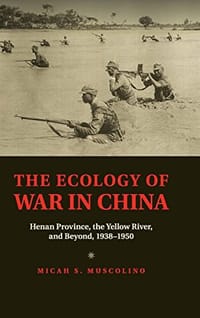This book explores the interplay between war and the environment in Henan Province, a hotly contested frontline territory that endured massive environmental destruction and human disruption during the conflict between China and Japan that raged during World War II. In a desperate attempt to block Japan's military advance, Chinese Nationalist armies under Chiang Kai-shek broke the Yellow River's dikes in Henan in June 1938, resulting in devastating floods that persisted until after the war's end. Greater catastrophe struck Henan in 1942-1943, when famine took some two million lives and displaced millions more. Focusing on these war-induced disasters and their aftermath, this book conceptualizes the ecology of war in terms of energy flows through and between militaries, societies, and environments. Ultimately, Micah Muscolino argues that efforts to procure and exploit nature's energy in various forms shaped the choices of generals, the fates of communities, and the trajectory of environmental change in North China.
◎ 著者简介
穆盛博(Micah S. Muscolino),男,1977年生,美国加利福尼亚人。研究方向是近代中国环境史。哈佛大学历史学博士毕业,历任加州圣玛丽学院助理教授、乔治城大学历史学系副教授,现任加利福尼亚大学圣迭戈分校教授。2009年出版环境史专著《近代中国的渔业战争和环境变化》(Fishing Wars and Environmental Change in Late Imperial and Modern China),本书填补中国环境史民国时期的空白。近年来,穆盛博的研究内容是“抗战时期华北环境史” 。
◎ 译者简介
亓民帅,男,1988年生,山东莱芜人。2017年获北京大学历史学博士学位,现为泰山学院历史学院讲师,主要从事中国古代史和区域社会文化史的教学和研究工作。
林炫羽,1989年1月生,历史学博士。先后就读于山东大学、北京大...

